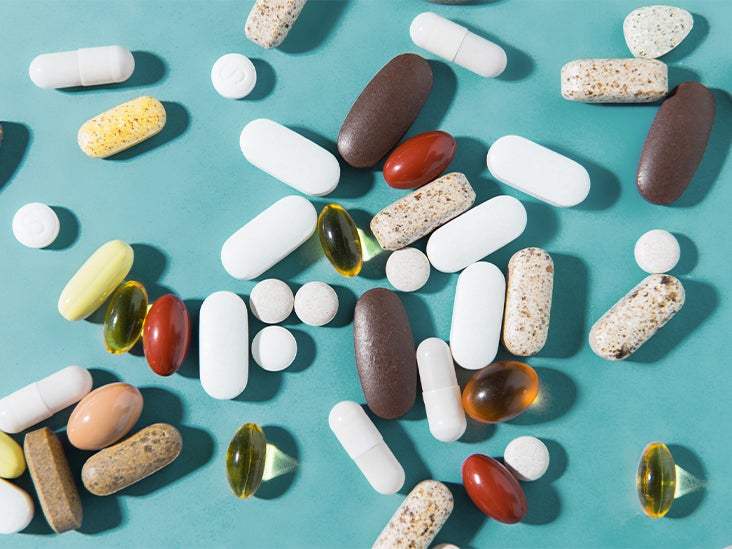Written by Jillian Kubala, MS, RD on December 23, 2020 — Medically reviewed by Amy Richter, RD, Nutrition
Over 30% of the world’s population has high blood pressure, which is considered the leading modifiable risk factor for heart disease and early death (1).
Still, numerous strategies can help you reduce blood pressure, such as following a healthy diet, quitting smoking, cutting back on alcohol, exercising, and losing excess body fat (2).
What’s more, certain supplements have been shown to help reduce high blood pressure.
Here are 14 supplements that may help lower your blood pressure.
1. Magnesium
Magnesium is a mineral that’s critical for many bodily functions, including blood pressure regulation (3).
Studies show that magnesium supplements may help reduce blood pressure by increasing the production of nitric oxide — a signaling molecule that helps relax blood vessels (4).
A review of 11 randomized studies found that magnesium, taken at 365–450 mg per day over an average of 3.6 months, significantly reduced blood pressure in people with chronic medical conditions (5).
Another review of 10 studies in over 200,000 people suggested that greater dietary intake of magnesium may protect against high blood pressure in the first place. Every 100-mg daily increase in dietary magnesium was linked to a 5% reduction in high blood pressure risk (6Trusted Source).
2. Vitamin D
Research shows that people with high blood pressure tend to have lower levels of vitamin D than those without this condition (7, 8).
Studies also demonstrate that higher blood levels of vitamin D may help protect against high blood pressure.
A review of data in over 300,00 people found that those with the highest vitamin D levels had up to a 30% reduced risk of high blood pressure, compared with those with the lowest levels (9, 10).
Thus, people with high blood pressure should get their vitamin D levels checked and supplement accordingly.
3. B vitamins
Several B vitamins may help reduce blood pressure levels.
For example, vitamin B2 (riboflavin) supplements have been shown to help reduce blood pressure in adults with methylenetetrahydrofolate reductase (MTHFR) gene mutations, which make high blood pressure more likely (11, 12, 13).
Folic acid and folate supplements — vitamin B9 — may also lower blood pressure in people with heart disease. Additionally, higher folate intake in young adulthood may protect against this condition later in life (14, 15).
While animal studies suggest that vitamin B6 supplements likewise reduce high blood pressure, human research is lacking (16).
4. Potassium
Potassium may be the best known nutritional supplement for blood pressure regulation. Studies suggest that increasing your intake through food or supplements helps reduce high blood pressure levels (17, 18, 19, 20).
Potassium works by promoting sodium excretion through the urine and helping blood vessels relax.
In a review of 23 studies, potassium supplements led to a modest but significant drop in blood pressure, compared with a placebo (18).
Other reviews note that these supplements are safe and effective, though they appear most effective in people with high blood pressure who follow high sodium diets (19, 21).
5. CoQ10
Coenzyme Q10 — commonly called CoQ10 — is a vitamin-like molecule that’s made by your body and found in certain foods (22).
When taken as a supplement, it may help reduce blood pressure.
A review of 17 studies found that CoQ10 supplements significantly reduced systolic blood pressure, which is the top number on a reading (23).
However, results from other studies are mixed. Thus, more research is needed (24).
6. L-arginine
L-arginine is an amino acid that may lower blood pressure levels when taken as a supplement.
An umbrella review of 7 meta-analyses in 4,676 people demonstrated that L-arginine supplements significantly reduced total blood pressure in people with high levels, as well as diastolic blood pressure in pregnant women with high levels (25).
Furthermore, the review found that L-arginine supplements significantly improved blood vessel function and blood flow (25).











